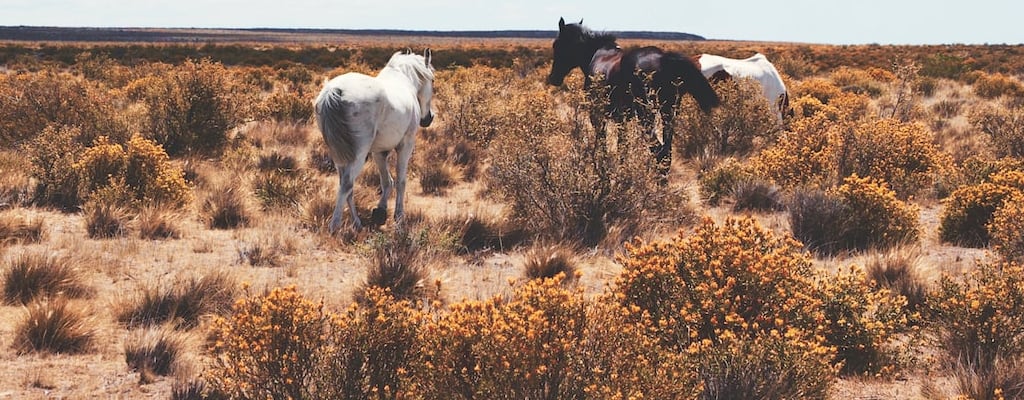pale rider: Idiom Meaning and Origin
What does ‘pale rider’ mean?
The idiom pale rider refers to something or someone ominous or foreboding. It is often linked to death or disaster, drawing inspiration from the image of a pale horse and its rider in the biblical book of Revelation. The term conveys a sense of impending doom or a threatening presence.

Idiom Explorer
The idiom "white rider" refers to a person or situation that is seen as a hopeful or positive influence, often bringing aid, support, or good news.
The idiom "push up daisies" means to be dead and buried in a cemetery.
The idiom "prophet of doom" refers to someone who consistently predicts negative or disastrous events in the future. This person tends to focus on the bleak possibilities and often warns others about potential dangers or failures. They have a pessimistic outlook and often lack optimism or hope.
The idiom "pretty pictures" refers to visually appealing and attractive images or photographs. It is often used to describe something that looks nice or pleasing to the eye but lacks substance or depth.
The idiom "porcelain skin" refers to skin that is exceptionally clear, smooth, and pale, resembling the appearance of delicate porcelain. It describes a complexion that is blemish-free and has a translucent quality.
The idiom "pony in the barn" means having something valuable or desirable that is not being used or shown off. It reflects the idea of keeping a pony hidden away in a barn instead of riding it or displaying it for others.
The idiom "play the ponies" refers to the act of betting on horse races, often at a racetrack. It implies engaging in gambling or taking risks in hopes of monetary gains.
The idiom "pay the piper" means to suffer the negative consequences or face the payment of a debt or obligation that has been incurred, typically as a result of one's own actions or choices.
Mysterious Horseman
The idiom "pale rider" has several meanings and origins, all of which contribute to its rich and complex nature.
One fact about the idiom is that it is derived from the Bible. In the book of Revelation, there is a passage that describes a pale horse and its rider, symbolizing Death. This biblical reference is often associated with the idiom and adds to its eerie and foreboding connotations.
Another fact about "pale rider" is its connection to the Wild West. In this context, a pale rider is often depicted as a ghostly figure on a horse, representing death or impending doom. The image of a lone figure riding into town on a pale horse has become a powerful symbol in Western literature and movies.
Furthermore, "pale rider" is sometimes used metaphorically to describe a dangerous or threatening situation or individual. It can evoke a sense of danger, fear, or impending disaster. This usage expands the idiom's scope beyond its biblical and Wild West origins, making it adaptable to various contexts.
Considering these different aspects, let's delve into a closer examination of the idiom "pale rider" and its related idioms "black rider" and "white rider."
The idiom "pale rider" encompasses a range of meanings and origins that contribute to its power and significance. Derived from the Bible and associated with Death, it evokes a sense of foreboding and impending doom. In the Wild West context, it becomes an embodiment of death itself, a ghostly figure riding into town, spreading fear and apprehension. Metaphorically, the idiom can be applied to describe dangerous or threatening situations or individuals, amplifying its impact and adaptability. Through its biblical, historical, and metaphorical associations, "pale rider" embodies the inevitability and uncertainty of death, leaving room for contemplation and reflection on the darker aspects of the human experience.
Now, let's explore how "pale rider" is related to the idioms "black rider" and "white rider."
The idiom "black rider" shares a similar sense of foreboding and danger as "pale rider." It is often used to describe a mysterious or malevolent figure who brings chaos or destruction. Just like the pale rider, the black rider is associated with darkness and impending doom. Both idioms conjure images of ominous figures riding into town, casting a shadow of fear and uncertainty.
On the other hand, the idiom "white rider" has a more positive connotation compared to "pale rider." It is often used to represent a hero or someone who brings hope and salvation. While the pale rider symbolizes death, the white rider represents life and new beginnings. These two idioms can be seen as contrasting forces, with the white rider offering a glimmer of hope in the face of the pale rider's grim presence.
The idiom "pale rider" carries a multitude of meanings and origins, ranging from its biblical roots to its associations with the Wild West. It can be used to describe both literal and metaphorical situations, amplifying its impact and versatility. Additionally, the related idioms "black rider" and "white rider" offer contrasting perspectives, with the former representing danger and the latter symbolizing hope. Together, these idioms provide a glimpse into the complex nature of human experiences, exploring themes of life, death, fear, and resilience.
Example usage
Examples of how the idiom "pale rider" can be used in a sentence:
- The sight of the pale rider on his white horse sent chills down my spine.
- As the pandemic spread, the hospitals became overwhelmed with patients and the pale rider of death seemed to be lurking around every corner.
- When the stock market crashed, many investors lost their fortunes in an instant, under the shadow of the pale rider of financial ruin.
More "Death" idioms



